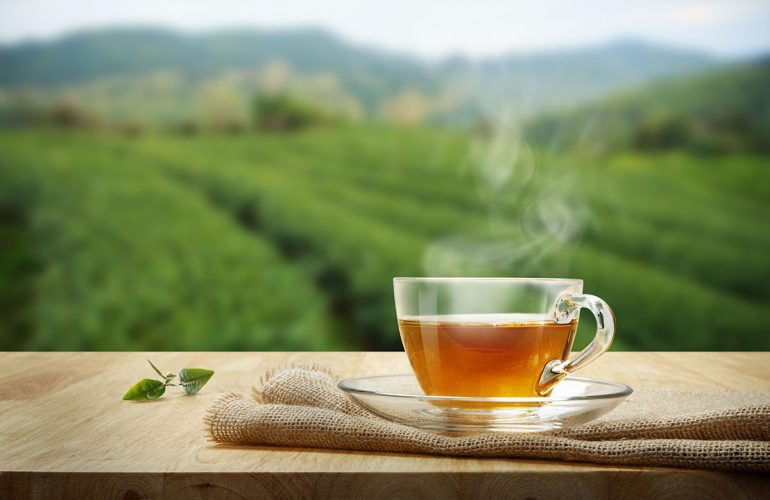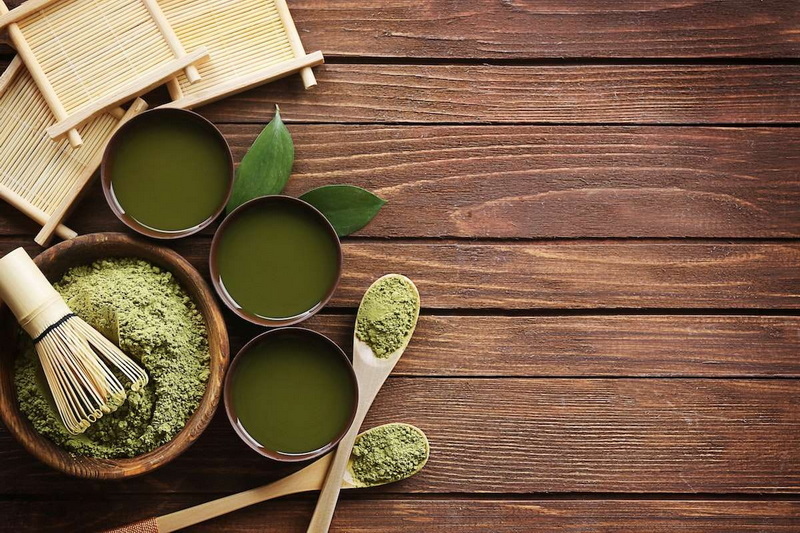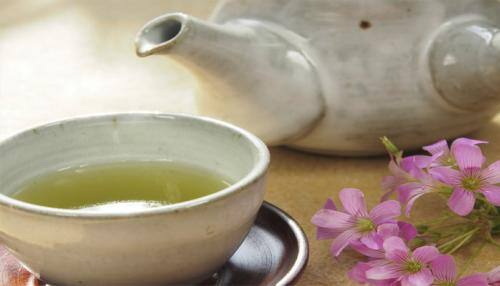Content Menu
● Understanding Green Tea Extract
>> Caffeine Content in Green Tea Extract
● Caffeine Comparison: Green Tea vs. Other Beverages
● Health Benefits of Green Tea Extract
● How to Incorporate Green Tea Extract into Your Diet
● Potential Side Effects
● Choosing the Right Green Tea Extract
● Conclusion
● Frequently Asked Questions (FAQs)
>> 1. How much caffeine is typically found in green tea extract?
>> 2. Is green tea extract safe for everyone?
>> 3. Can I take green tea extract for weight loss?
>> 4. What are the main health benefits of green tea extract?
>> 5. How does the caffeine in green tea compare to coffee?
● Citations:
Green tea extract has gained popularity as a dietary supplement due to its numerous health benefits, including weight loss, improved brain function, and antioxidant properties. However, one common question that arises is: How much caffeine is in green tea extract, specifically when taking a 200 mg dosage? This article will delve into the caffeine content of green tea extract, its health implications, and answer frequently asked questions about this popular supplement.

Understanding Green Tea Extract
Green tea extract is derived from the leaves of the Camellia sinensis plant and is concentrated to provide higher levels of beneficial compounds compared to brewed green tea. The extraction process aims to retain key components such as catechins (notably EGCG) and caffeine, which contribute to its health benefits.
Caffeine Content in Green Tea Extract
The caffeine content in green tea extract can vary significantly depending on the brand and formulation. Generally, here are some common findings regarding caffeine levels:
- An 8-ounce (230 ml) cup of brewed green tea contains approximately 30 to 50 mg of caffeine.
- Green tea extract supplements can range from as low as 2 mg to over 200 mg of caffeine per serving, depending on their concentration and formulation.
For a specific product containing 200 mg of caffeine with green tea extract, the amount of caffeine can vary based on how much green tea extract is included in the formulation. For example, some products may contain only 20 mg of green tea extract with 200 mg of caffeine per serving, while others may have higher concentrations of the extract with varying caffeine content.
Caffeine Comparison: Green Tea vs. Other Beverages
To understand the relative caffeine content of green tea extract, it's useful to compare it with other common sources of caffeine:
| Beverage | Caffeine Content (per serving) |
| Brewed Coffee (8 oz) | 95 - 165 mg |
| Black Tea (8 oz) | 40 - 70 mg |
| Green Tea (8 oz) | 30 - 50 mg |
| Green Tea Extract (200 mg) | Varies widely; typically around 20-200 mg |
As seen in the table, while green tea contains less caffeine than coffee and black tea, certain extracts can provide significant amounts of caffeine.
Health Benefits of Green Tea Extract
Green tea extract is rich in antioxidants and has been linked to various health benefits:
- Weight Loss: Studies suggest that catechins and caffeine can enhance metabolic rate and promote fat oxidation. A study published in the American Journal of Clinical Nutrition found that participants who consumed green tea extract experienced a greater reduction in body fat compared to those who did not.
- Heart Health: Regular consumption may lower cholesterol levels and improve cardiovascular health. Research indicates that the polyphenols found in green tea can help reduce LDL cholesterol levels and improve blood vessel function.
- Brain Function: The combination of caffeine and L-theanine found in green tea can enhance cognitive function and alertness. A study published in Psychopharmacology showed that participants who consumed green tea performed better on cognitive tasks compared to those who did not.
- Antioxidant Properties: Green tea extract is high in antioxidants, particularly catechins. These compounds help combat oxidative stress and may reduce the risk of chronic diseases such as cancer.
- Blood Sugar Regulation: Some studies suggest that green tea extract may help regulate blood sugar levels and improve insulin sensitivity, making it beneficial for individuals with type 2 diabetes.
How to Incorporate Green Tea Extract into Your Diet
Incorporating green tea extract into your daily routine can be done in several ways:
- Supplements: Available in capsules or tablets, these are a convenient way to ensure you're getting a consistent dose of green tea extract.
- Powdered Form: Matcha is a powdered form of green tea that can be added to smoothies, baked goods, or consumed as a beverage.
- Beverages: Some brands offer ready-to-drink beverages infused with green tea extract for those who prefer liquid forms.

Potential Side Effects
While moderate consumption of green tea extract is generally safe for most individuals, excessive intake can lead to side effects primarily due to its caffeine content. These may include:
- Anxiety
- Insomnia
- Heart palpitations
- Digestive issues
Individuals sensitive to caffeine or those with certain medical conditions should consult a healthcare provider before starting any new supplement regimen. Additionally, high doses of catechins may lead to liver toxicity in rare cases.
Choosing the Right Green Tea Extract
When selecting a green tea extract supplement, consider the following factors:
- Caffeine Content: Check the label for the amount of caffeine per serving. If you are sensitive to caffeine or consume other caffeinated products, choose an option with lower caffeine content.
- EGCG Levels: Look for products standardized for EGCG content if you are specifically interested in its health benefits.
- Quality Assurance: Opt for brands that conduct third-party testing for purity and potency. This ensures you are getting a high-quality product without contaminants.
Conclusion
In summary, the amount of caffeine in a 200 mg dose of green tea extract varies significantly based on the specific product formulation. While some extracts may contain considerable amounts of caffeine that rival those found in coffee, others may be much lower. It's essential for consumers to read labels carefully and choose products that align with their health goals and sensitivity to caffeine.

Frequently Asked Questions (FAQs)
1. How much caffeine is typically found in green tea extract?
The caffeine content in green tea extract can range from as low as 2 mg to over 200 mg per serving, depending on the brand and formulation.
2. Is green tea extract safe for everyone?
While generally safe for most people when consumed in moderation, those sensitive to caffeine or with specific health conditions should consult a healthcare professional before use.
3. Can I take green tea extract for weight loss?
Yes, studies suggest that green tea extract can aid in weight loss by enhancing metabolic rate and promoting fat oxidation.
4. What are the main health benefits of green tea extract?
Green tea extract is known for its antioxidant properties, potential weight loss benefits, improved heart health, and enhanced brain function.
5. How does the caffeine in green tea compare to coffee?
An 8-ounce cup of brewed coffee typically contains between 95 to 165 mg of caffeine, while brewed green tea contains about 30 to 50 mg. Green tea extract may vary widely but can also reach high levels similar to coffee depending on the product.
Citations:
[1] https://www.livestrong.com/article/186702-how-much-caffeine-is-in-green-tea-extract/
[2] https://m.pipingrock.com/caffeine-supplements/caffeine-200-mg-with-green-tea-extract-120-tablets-23400
[3] https://pmc.ncbi.nlm.nih.gov/articles/PMC3649093/
[4] https://www.youtube.com/watch?v=5OlyxaRgabw
[5] https://www.healthline.com/nutrition/10-benefits-of-green-tea-extract
[6] https://www.zhounutrition.com/blogs/the-greatness-files/green-tea-extract-q-a
[7] https://www.healthline.com/nutrition/caffeine-in-green-tea
[8] https://si.chenlangbio.com/knowledge/do-green-tea-extract-have-caffeine-
[9] https://health.clevelandclinic.org/green-tea-extract-a-better-way-to-boost-energy-or-not
[10] https://www.caffeineinformer.com/caffeine-content/green-tea-extract
[11] https://www.medicalnewstoday.com/articles/269538
[12] https://www.mountsinai.org/health-library/herb/green-tea
[13] https://www.reddit.com/r/chemistry/comments/3gt1zo/how_much_caffeine_in_green_tea_extract/
[14] https://www.ncbi.nlm.nih.gov/books/NBK299060/
[15] https://shopee.sg/CAFFEINE-Plus-GREEN-TEA-Extract-200mg-x-300-or-100-Tablets-Capsules-Supplement-i.1247945720.27514994109
[16] https://naturestruth.com/products/caffeine-200-mg-with-green-tea-extract
[17] https://www.elo.health/articles/green-tea-extract-supplements/
[18] https://www.livestrong.com/article/186702-how-much-caffeine-is-in-green-tea-extract/
[19] https://hammernutrition.com/blogs/endurance-news-weekly/green-tea-extract-in-fully-charged
[20] https://www.youtube.com/watch?v=Q8gBjZ5e3Bs
[21] https://pubmed.ncbi.nlm.nih.gov/16506807/
[22] https://www.medicalnewstoday.com/articles/269538
[23] https://www.youtube.com/watch?v=RIbff5iD0GQ
[24] https://tigogreen.de/en/greentea-greentea-extract/
[25] https://support.optimumnutrition.com/en/support/solutions/articles/80001094135-how-much-caffeine-is-in-your-green-tea-and-green-coffee-extracts-
[26] https://www.healthline.com/nutrition/top-10-evidence-based-health-benefits-of-green-tea
[27] https://pmc.ncbi.nlm.nih.gov/articles/PMC6412948/
[28] https://www.webmd.com/drugs/2/drug-76714/green-tea-leaf-extract-oral/details
[29] https://www.urmc.rochester.edu/encyclopedia/content?contenttypeid=19&contentid=greenteaextract






























